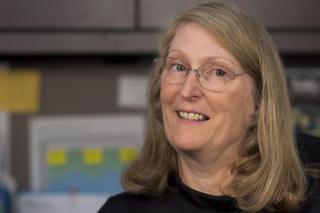Cindy Clement, Director of Undergraduate Studies in Economics from 2006 until 2020, taught various courses and carried out a variety of tasks to strengthen and improve the undergraduate program, including curriculum design and assessment, hiring and mentoring professional faculty and graduate student instructors, supervising academic advisors and supporting economics faculty with expertise in learning technologies and university policies. She served on the University Senate's PCC committee and on the GenEd Math and Analytic Reasoning and Scholarship in Practice Faculty Boards. In fall 2015 she was awarded the Kirwan Undergraduate Award for exceptional contributions to the quality of undergraduate education at the university. Prior to taking on the position of undergraduate studies director, she was a faculty research associate for 9 years. In that capacity, she authored assessments of legal and economic policy institutions in various developing countries, designed workshops for both domestic and foreign policymakers, contributed to development of new methodologies for measuring corruption, and managed a team of lawyers and economists and development projects around the world. In retirement, Dr. Clement still teaches online classes in winter and summer terms. She also plans to learn Spanish!
Degrees
-
Degree TypePhDDegree DetailsEconomics, University of Maryland, 1997
-
Degree TypeMADegree DetailsEconomics, University of Maryland, 1987
-
Degree TypeBADegree DetailsEconomics, Smith College, 1984
I consider myself to be a practical person. I like to solve problems. At any given time, I have various projects underway at work, at church, and at home, all aimed at improving specific outcomes of one form or another. The more complicated the problem, the more encompassing the project, the better. I like the whole process—figuring out all the specific variables, testing possible solutions, implementing changes, evaluating progress, experiencing the results. Of course, unforeseen issues and frustrating set-backs will occur along the way, but if it was easy, the problem or project at hand likely would not be worth much effort. I am happiest when I’ve just finished a project and already have another underway or lined up to tackle next.
Teaching is like solving a complicated problem or working on a big project. What does any one set of students need to know? How much do they already know about this subject? Do they understand why they need to know this particular content? How can they be motivated to meet a high standard? What skills do they bring to the learning endeavor? Which skills do they need to practice? How can I communicate most effectively to people with different interests and backgrounds? What blend of encouragement and constructive criticism will prompt the best learning outcomes?
Before each semester when I plan for a particular course, I ask myself these questions. The fact that I’ve studied this subject, worked in this field, and taught this material before is only a starting point. A good starting point, to be sure, but I am not satisfied to rest on past successes, and I want to learn from past mistakes. I believe the next set of students deserves personalized attention and a fresh perspective. The objectives I set for their learning should be relevant to their situations to the extent possible, and the activities I ask them to carry out should be useful for more than just determining course grades.


